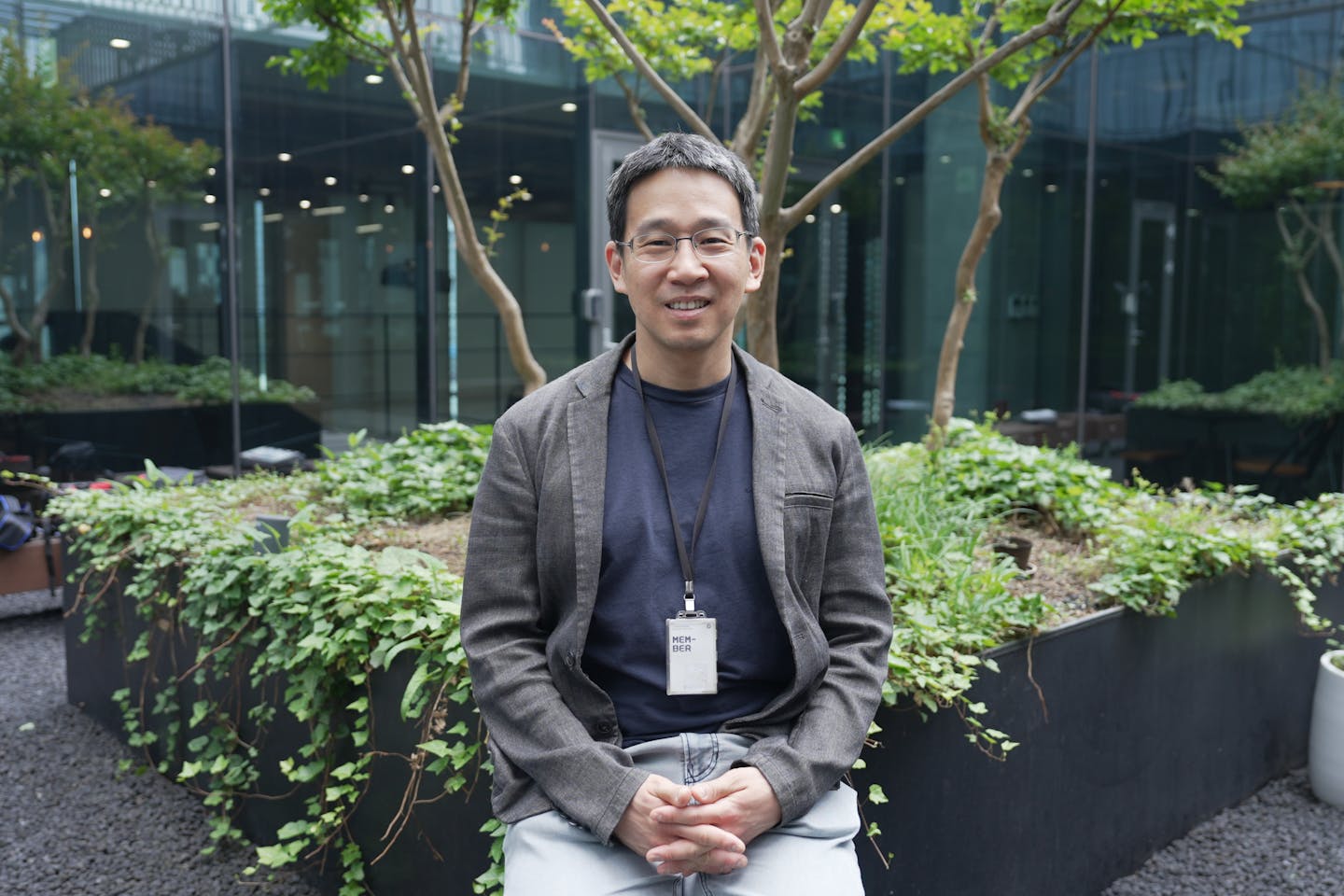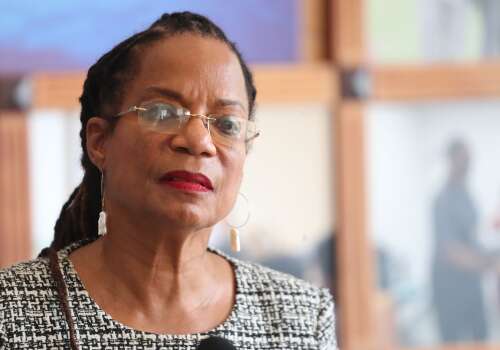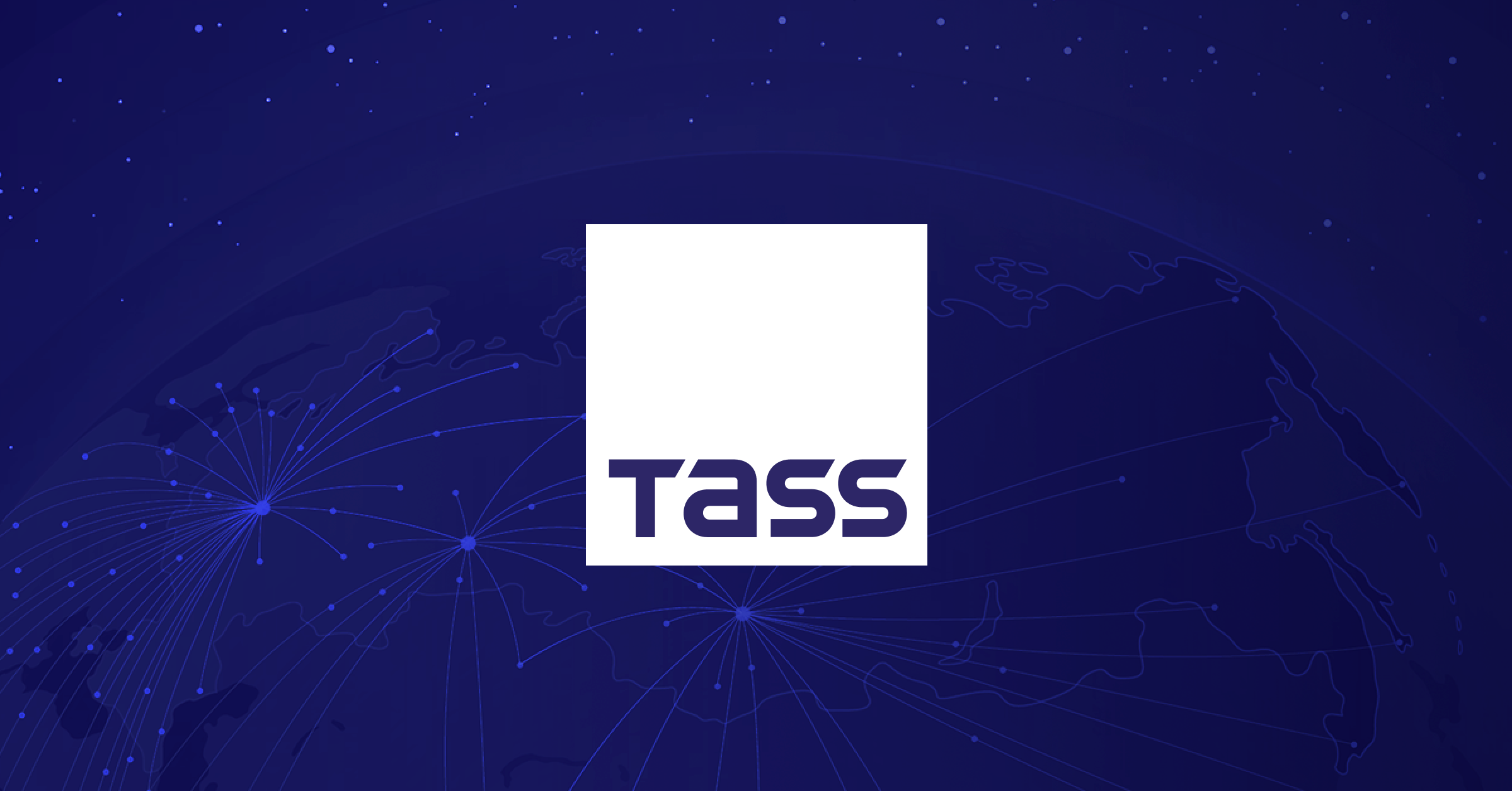Turning up the heat: Joojin Kim on taking Solutions for Our Climate’s approach of holding polluters to account regional
By Ng Wai Mun
Copyright eco-business

Liquefied natural gas (LNG) remains deeply embedded in the energy strategies of South Korea and broader East Asia. It has been marketed as a cleaner bridge fuel, but climate advocates warn that growing LNG investments risk locking the region into decades of carbon emissions.
Joojin Kim, founder and CEO of Solutions for Our Climate (SFOC), believes the approach that the climate advocacy group takes can help shift that trajectory.
“We are building new teams in Japan and Taiwan,” Kim told Eco-Business. The Seoul-based non-profit has had a clear mission, to rely on science-based research and knowledge to change the energy narrative and reduce the region’s dependence on fossil fuels by making it riskier for those with interests in polluting sectors.
Earlier this year, SFOC opened an office in Taiwan, with Kim meeting with central and local government officials to lay the groundwork for long-term climate work in cities across Taiwan. It has also been recruiting and expanding its team that researches on decarbonisation in Japan, while hiring for its Japan office.
A former corporate lawyer, Kim left his legal career in 2016 to start SFOC. Under his leadership, the group said it has helped cancel over 4,000 megawatts (MW) of coal projects across Asia and pushed for the retirement of 8,000 MW of domestic coal in South Korea.
SFOC also played a key role in the country’s first youth-led climate lawsuit, which culminated in a landmark ruling by South Korea’s Constitutional Court that declared parts of the national climate law unconstitutional for failing to protect future generations.
SFOC combines legal pressure and policy advocacy. A recent study by the group linked ten major polluters, including steelmaker POSCO and state power utility KEPCO, to US$119.6 billion in heatwave losses. It is now backing farmers who are suing both companies for their role in worsening climate risks.
This year, Kim was named a winner of the Sustainability Leadership A‑List awards, recognising his impact in shaping climate action in South Korea and beyond.
As SFOC grows beyond its home base, Kim is thinking about how to keep momentum through political shifts – and how to build teams and retain talent to deliver long-term impact, in a field that demands both moral clarity and resilience.
In the following Q&A, he shares more on SFOC’s expansion, lessons from South Korea, and what it means to hold influential companies accountable in a changing region.
Now one of the largest courts in the country has made a climate-friendly decision, so I think a lot of people working in the lower courts will have more courage and be more empowered to set bolder precedents.
One of the missions of SFOC is very clearly-worded: to make it riskier for the financial industry to support fossil fuels. Was this something you had set out to do or did the mission evolve over the years?
I saw a problem in [the presence] of coal-powered assets across Asia, particularly in South Korea and in Southeast Asia. A key reason for these developments was that a lot of money was flowing to the coal plants. The governments were financing them. We knew that to slow down fossil fuel asset development, the money flow first had to be slowed down.
For new greenfield fossil fuel assets, we also found that questioning the project finance package, the public financing supporting them, or even export credits and government insurance, was important. For current operating assets, we need to know whether bond holders are making fair decisions when they invest in them, and whether the government is supporting the rating of bonds issued by fossil fuel companies. All these are important from our perspective.
For renewables, then we look at removing the policy barriers that make them difficult to develop.
Was there a successful case study that led to SFOC or you discovering that finance was a strong lever you could use?
An important example is the impact of the ending of public financing into coal power plants by the South Korean government, and after that, the Japanese and Chinese governments. We had been advocating for a long time for this to happen since we started SFOC and South Korea finally announced the end to that in April 2021. Within six months, Japan and China followed suit.
What this did was that a lot of financing going into the newly planned coal power plants in Southeast Asia also stopped. There was no public finance going into that suddenly and the stream of private finance also slowed. Many of these coal projects were paused. And the emissions [reduction] impact of this suspension was huge.
It shows how important finance-related decisions are in ending or reducing greenhouse gas emissions. If the coal plants, say in Indonesia, had then been developed, that would be [equivalent to] the size of coal power fleets of many countries combined.
SFOC supported the youth-led litigation that led to the landmark 2024 ruling which declared South Korea’s climate law unconstitutional for failing to protect basic rights. It marked Asia’s first court decision linking climate inaction to human rights violation. How do you see the law and courts playing a role in SFOC’s work?
As much as we reach out to policymakers, legislators and journalists to share our understanding on climate change, in recent years, engaging the legal community has become more important too.
Over the past year, this lawsuit has meant expanded coverage of the work we do and stronger engagement with our legal stakeholders. We already saw this before the ruling, that there has been strong growth of climate-focused organisations working to share about climate science with judges and lawyers in the country. The ruling shows that the legal fraternity is are becoming more aware about the impacts of climate change.
Now one of the largest courts in the country has made a climate-friendly decision, so I think a lot of people working in the lower courts will have more courage and be more empowered to set bolder precedents. Many lawyers would probably be motivated by the ruling and consider filing similar cases in the courts.
Globally, we are seeing a climate action retreat and there has been a lot of uncertainty on how geopolitics intersect with climate, particularly after US President Donald Trump’s election. Have these affected SFOC’s work?
Not very much. Our work is focused on spreading climate science to the key stakeholders and decision makers. We are asking people to think about the impact, that if you invest US$10 in a [coal] facility, it will lead to emissions, and therefore you shouldn’t invest. We tell them how much a certain investment decision will add to global emissions. And I think that can be done regardless of the geopolitical environment or whether you have a conservative or progressive government.
Take South Korea for example. We recently had a President impeached and removed from office, but climate progress still happened. In February this year, when the constitutional court was still in deliberation and then-President Yoon Suk-yeol’s impeachment had not yet been confirmed, there was another noteworthy development that some might have missed. South Korea’s National Assembly had passed the bipartisan Offshore Wind Special Act to fast-track renewable energy [by streamlining permits, designating zones and targeting 14.3 gigawatts of offshore wind capacity by 2030]. I think it is a good example of how a government regime change does not hold back climate progress.
Of course, the US is a significant player but there are other important global stakeholders. People have a better understanding of how climate change impacts the world now and I am confident they will respond accordingly, in spite of the political climate.
South Korea has been going through a period of political change. Now we see a new administration led by President Lee Jae-myung and observers are trying to interpret what this means – if it will lead to the government taking a more progressive stance towards renewables. How does SFOC see this development?
The current administration does have climate-positive policies. One of the commitments made by the President during his election campaign was to phase out coal-fired power plants by 2040. He also committed to prioritise renewables and improving policies that have been making clean energy development difficult, as well as pledged more support for green steel.
There might be difficulties in implementation, but we are supportive of helping to accelerate the transition.
But like the previous President, the current President will also be bound by his constituents or the people who had elected him. Their demands are not necessarily going to be pro-climate. There will be all kinds of voices that will emerge especially if he pushes for an energy transition.
For example, if he wants to reform the power sector, people who run the coal plants, gas plants or nuclear plants will be affected. Hence, there will be limitations to his power.
Our job as a non-profit organisation is to make the climate-friendly promises of any leader easier to implement.
In December, SFOC also put out a statement expressing your strong condemnation of the former President Yoon Suk-Yeol’s sudden declaration of emergency martial law, stating that this is unconstitutional. Why did SFOC decide to comment on the political situation?
SFOC is a non-partisan organisation, but martial law goes against the principles of democracy and democracy is the lifeblood for organisations like us. It will narrow civil society space and impact climate advocacy.
What are the biggest climate policy challenges for South Korea right now?
Renewables such as solar and wind have a lot of potential. In South Korea, offshore wind is especially promising. But policies that can support these developments are not in place.
We have a very old energy development regime that is not designed for supporting offshore wind assets and that is causing delay and discouraging investors. Expediting renewable energy projects is still not in the spirit of how the government operates, nor does the regulations we have support it. It is important to change that.
Our power sector is also not operated in the most fair and transparent way. There are structural biases in the electricity market. If you compare how fossil fuel-generated electrons compete with renewables-generated electrons within the transmission grid, you will find that the fossil fuel-generated ones get more compensation and more opportunities to get into the network, [because of guaranteed access to the grid]. The “unfairness” needs to be fixed.
South Korea also still plays a very big role in the global gas supply chain. It will have to reduce its exposure to liquefied natural gas (LNG), and LNG must be seen as a fossil fuel [not a clean energy source].
Some of the corporates that SFOC has continuously called out include steelmaker POSCO and state-owned power utility Korea Electric Power Corporatation (KEPCO). How do you handle the challenge of coming up against these big and influential organisations?
Many of the companies that emit a lot of fossil fuels are much bigger than us. They have several thousand times more employees, and we cannot compete on scale.
But I think our theory of change is simple. We produce good content revealing the reality of climate change, especially how economic activity can affect the climate. And we put it in front of the people who need to know it. That is how we work.
The biggest difficulty is, like I said, that we are tiny. We have slightly more than 100 people on the team. Becoming visible is challenging. Finding smart and effective people who are willing to work on a non-mainstream agenda is also very difficult.
But I have faith. SFOC is now a lot stronger than the organisation I started years ago.
Has it been easier attracting people to the cause?
Yes, certainly. There is now a broader understanding of the science associated with climate change. Although we are still constantly in search of talent, we see that a lot of people now approach us with the willingness to contribute and they are passionate. There has been a lot of improvement on this front in South Korea, as well as in Japan and Taiwan.
Do you have any advice for sustainability leaders who are coming up against large and powerful forces?
I would say have a clear mission statement. Know in your mind what you want to achieve, and remember to prioritise that at all times.
It’s not very different from how leaders in the business world operate. Be smart and diligent. Be good team players. Abide by strong standards of integrity.
What work would SFOC be focusing on for the next five to 10 years?
A big change we are going through now is the building of new teams in Japan and Taiwan, similar to what we have in South Korea. We are trying to replicate the working model and culture to places where we feel impact can be delivered, just like how it has been done in Korea.
In Japan and Taiwan, there are also a lot of investments in LNG, and that has to be reduced.
A lot more work also has to be done to ensure that the unfairness favouring fossil fuels over renewables is fixed so that clean energy is properly valued and can be developed faster. We will need to work towards decarbonising the petrochemical and steel sectors in the region. Companies will have to stop investing in blast furnaces. Joojin Kim was one of 10 sustainability leaders selected for the Eco-Business A-List 2025. Read our stories with the other winners here.



